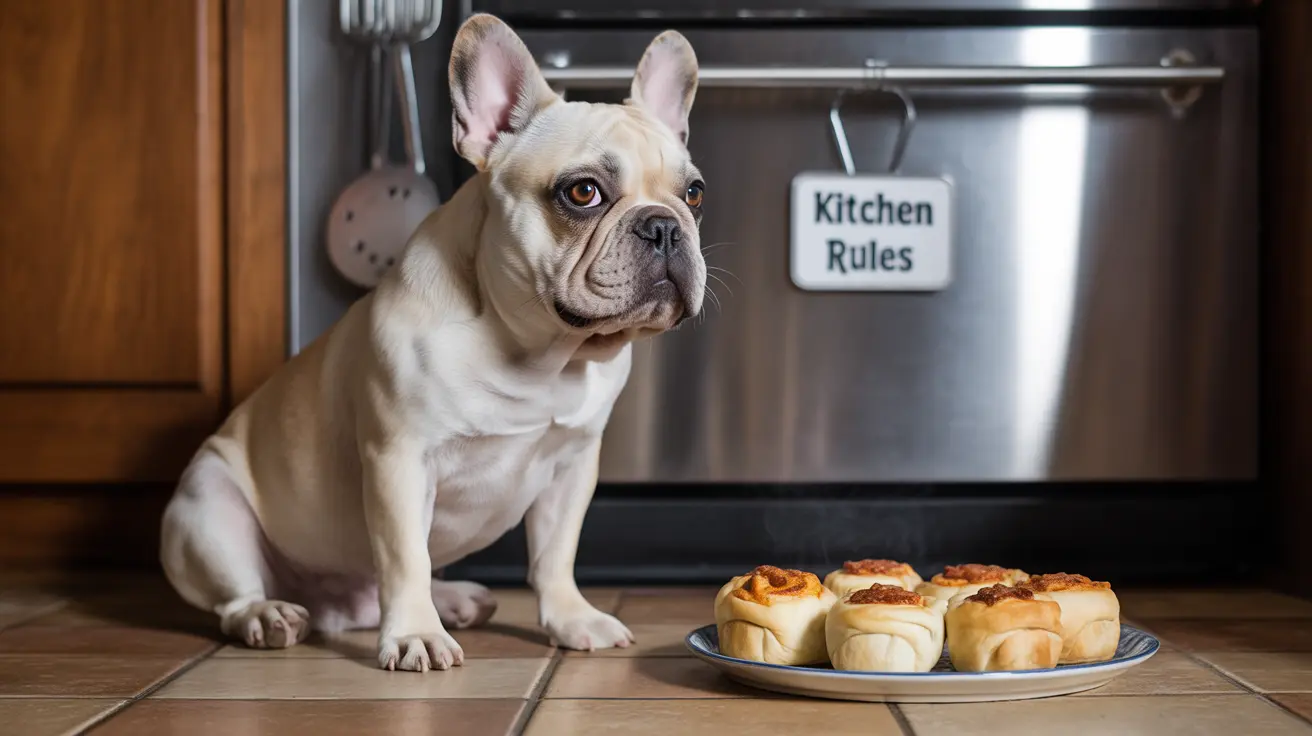As a pet parent, you might wonder if sharing your favorite snacks with your furry friend is safe. When it comes to pizza rolls, the answer is clear: these popular frozen treats are not safe for dogs to eat. Let's explore why these seemingly harmless snacks can pose serious health risks to your canine companion.
While a single pizza roll accidentally consumed by a large dog may not cause immediate harm, these processed snacks contain several ingredients that can be dangerous or even toxic to dogs. Understanding these risks is crucial for maintaining your pet's health and well-being.
Dangerous Ingredients in Pizza Rolls
Toxic Components
Pizza rolls contain several ingredients that are toxic to dogs, particularly garlic and onion powder. Even in small amounts, these concentrated seasonings can cause serious health issues in dogs. These ingredients can damage your dog's red blood cells, potentially leading to anemia.
High Sodium Content
The excessive salt content in pizza rolls can lead to serious health complications in dogs, including:
- Severe dehydration
- Electrolyte imbalances
- High blood pressure
- Potential kidney strain
Health Risks of Feeding Dogs Pizza Rolls
Immediate Health Concerns
When dogs consume pizza rolls, they may experience several immediate health issues:
- Severe digestive upset
- Vomiting and diarrhea
- Abdominal pain
- Excessive thirst
Long-term Health Implications
Regular consumption of pizza rolls can lead to chronic health problems:
- Obesity from high caloric content
- Pancreatitis due to high fat levels
- Diabetes
- Cardiovascular issues
What to Do If Your Dog Eats Pizza Rolls
If your dog manages to eat pizza rolls, take these steps:
- Determine how many rolls were consumed
- Monitor your pet for unusual symptoms
- Contact your veterinarian if you notice concerning signs
- Watch for signs of garlic or onion toxicity
Safe Treat Alternatives for Dogs
Instead of pizza rolls, consider these dog-friendly options:
- Commercial dog treats
- Small pieces of plain, cooked chicken
- Carrots or apple slices (without seeds)
- Dog-specific training treats
Frequently Asked Questions
Can dogs safely eat pizza rolls or are they harmful?
No, pizza rolls are not safe for dogs to eat. They contain toxic ingredients like garlic and onion powder, excessive sodium, and unhealthy fats that can cause both immediate and long-term health problems.
What toxic ingredients in pizza rolls should dog owners be aware of?
The most concerning toxic ingredients in pizza rolls are garlic and onion powder, which can cause anemia in dogs. Other harmful components include high levels of sodium, processed fats, and artificial preservatives.
What symptoms indicate onion or garlic poisoning in dogs after eating pizza rolls?
Signs of onion or garlic poisoning include lethargy, weakness, reduced appetite, pale gums, dark-colored urine, and vomiting. These symptoms may take several days to appear after ingestion.
How much pizza roll is too much for a small dog, and what are the risks?
Even one pizza roll can be too much for a small dog. The high fat content can trigger pancreatitis, while the concentrated seasonings and sodium can cause severe digestive issues or toxicity, especially in smaller breeds.
What are safer treat alternatives to pizza rolls for dogs?
Safe alternatives include commercial dog treats, small pieces of plain cooked meat, fresh vegetables like carrots, or specially formulated dog biscuits. Always ensure treats make up no more than 10% of your dog's daily caloric intake.
Conclusion
While pizza rolls might be a tasty treat for humans, they pose significant health risks to dogs. The combination of toxic ingredients, high fat content, and excessive sodium makes them unsuitable for canine consumption. Instead, stick to dog-specific treats and consult your veterinarian about safe food options for your furry friend.






